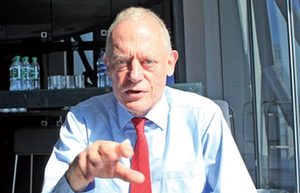Price strategies that will matter
By Zhongxiang Zhang (China Daily) Updated: 2014-05-26 07:12However, in December 2012, the State Council announced the abolition of the dual pricing system for coal, and shifting to market-based pricing.
At the same time, it tweaked the coal-electricity price co-movement mechanism and allowed adjustment in power tariffs if coal prices fluctuated by 5 percent or more in a 12 month-period and permitted electricity generators to pass up to 90 percent of increased fuel costs to grid companies, instead of the existing 70 percent threshold.
 |
 |
To address this disconnect, the government has, since May 2009, implemented a pricing mechanism by which it can adjust domestic petroleum product prices if the moving average of a basket of international crude oil prices, on a composite basis, rise by more than 4 percent within 22 consecutive working days.
To better reflect refiners' costs and adapt to fluctuations in global crude oil prices, in March last year the commission launched an automatic petroleum product pricing mechanism, shortening the 22-working-day adjustment period to 10-working-days and removing the 4 percent threshold. The government also decided to adjust the composition of the basket of crude to which oil prices are linked.
Reforms have also been undertaken for natural gas prices. A breakthrough in the reform area has been changing the existing cost-plus pricing to the "netback market value pricing" in Guangdong province and the Guangxi Zhuang autonomous region.
Under the new pricing mechanism, pricing benchmarks are selected and pegged to prices of alternative fuels to establish a price linkage between natural gas and its alternative fuels. Gas prices at various stages will then be adjusted accordingly.
- Huawei's Kirin 920 to shake global chip market?
- China to log food company conduct
- China's mixed ownership reform advances against headwinds
- Test drive on China's ancient trade routes with Rolls-Royce
- Bumpy start for plan to regulate taxi-calling apps
- CMB reveals credit to financial leasing companies
- Beijing car plate 'yin and yang'
- 19 cities to develop Silk Road tourism

















